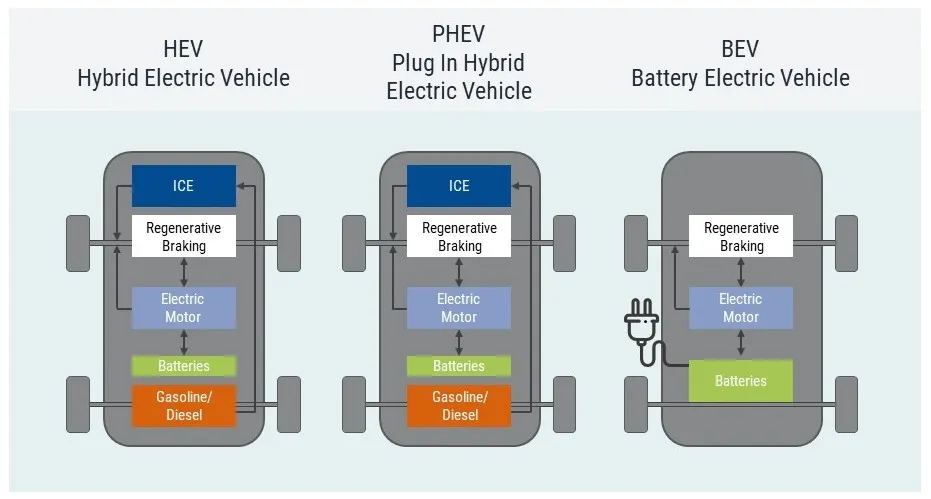Special purpose electric vehicles are manufactured to perform specific heavy tasks and are equipped with special equipment which works on their engine or separately mounted engine. Mostly these vehicles are heavy-duty vehicles, such as dump trucks, forklifts, tank trucks, and sweepers, utilized in various industries, such as chemical, petroleum, and construction. The factors driving the growth of special purpose electric vehicles are the expanding construction industry in various countries, the increasing investments by municipal corporations, and rising environmental concerns. Furthermore, it is expected to witness immense growth opportunities from the increasing requirement for a safer work environment and lower maintenance costs.
Municipal corporations use several special purpose electric vehicles, such as sanitation trucks, electric refuse collection trucks, electric road sweepers, and electric road flushing trucks, for road cleaning and maintenance. Waste management has become a serious challenge for international authorities due to exponential growth in industrial activities and the rampant use of inappropriate waste management methods. According to the World Bank’s ‘What a Waste 2.0: A Global Snapshot of Solid Waste Management to 2050’ report, in 2016, 242 million tons of plastic waste was generated globally, which is expected to reach 3.4 billion tons over the next 30 years. Therefore, authorities focus on regulating municipal and industrial waste management. Municipal corporations are also investing in the development of special-purpose electric vehicles.
FIGURE 1 TYPES OF ELECTRIC VEHICLES

Electric vehicles are categorized into three types based on the amount or degree of electricity used as a power source.
Governments worldwide are undertaking initiatives related to the use of special-purpose EVs, contributing to the growth of this market. For instance, in 2020, the Mayor of Jersey City, New Jersey, Steven Fulop, announced investing in electric vehicles to expand the city’s municipal fleet. These investments included purchasing waste trucks from BYD Motors Inc. (China) and police vehicles. This initiative established New Jersey’s municipal fleet as the first on the East Coast to feature fully electric garbage trucks and one of the first to utilize electric police response vehicles. Such initiatives contribute to the growth of the special purpose electric vehicles in the market.
The increasing use of Internal Combustion Engine (ICE) vehicles that run on fossil fuels has created several environmental concerns, such as global warming, harmful emissions, rising fuel consumption, and the depletion of fossil fuel reserves. Cars emit carbon monoxide, hydrocarbons, carbon dioxide, and other pollutants that harm the environment and human health. According to the International Energy Agency (IEA), in 2018, transportation accounted for almost one-fifth of global carbon dioxide (CO2) emissions, and road vehicles accounted for three-quarters of transport emissions. Passenger cars and buses accounted for 45.1% of the emissions, while freight trucks accounted for 29.4%. Therefore, governments of various countries are implementing electric vehicles to reduce carbon dioxide emissions.
The market share of plug-in cars increased to 8.2% (including 5.4% BEVs) and are propelling users towards electric vehicles owing to growing awareness about climate change, the need for a cleaner environment and rising pollution levels.
Following are the key trends in the market:
- The construction industry is responsible for 11% of energy-related carbon emissions of the total carbon emissions. There is a high demand for special purpose electric vehicles in the construction industry due to their benefits, such as reduced fuel costs, less CO2 emissions, a safer environment with less noise pollution, and less maintenance.
- Logistics companies plan to add more electric vehicles to their fleet as a part of the global effort to make transportation more sustainable. For instance, in 2020, Deutsche Post DHL Group (Germany) announced that the company, in line with the Paris Climate Agreement, would invest USD 7.9 billion over the next ten years to reduce carbon dioxide emissions by 2030. Such initiatives are expected to increase the demand for special-purpose electric vehicles in logistics sectors.
- Several governments are adopting special purpose electric vehicles for the mining and steel sectors. For instance, in 2019, the National Mineral Development Corporation (India), in alliance with the state governments of Jharkhand and Karnataka in India, announced the inclusion of special-purpose electric vehicles to set up steel factories.
Read In Detail @ https://www.meticulousresearch.com/download-sample-report/cp_id=5291
Related Tag:
Related Blogs:

Special Purpose Electric Vehicles Market
Read More
European Electric Scooters Market
Read More
IMPACT OF ELECTRIC CARS ON ENVIRONMENT
Read More
THE RISE OF ELECTRIC VEHICLES
Read More
Recreational Boats - Trends and Numbers
Read More
Special Purpose Electric Vehicles Market
Read More
European Electric Scooters Market
Read More
IMPACT OF ELECTRIC CARS ON ENVIRONMENT
Read More
THE RISE OF ELECTRIC VEHICLES
Read More
Recreational Boats - Trends and Numbers
Read More
Special Purpose Electric Vehicles Market
Read More




